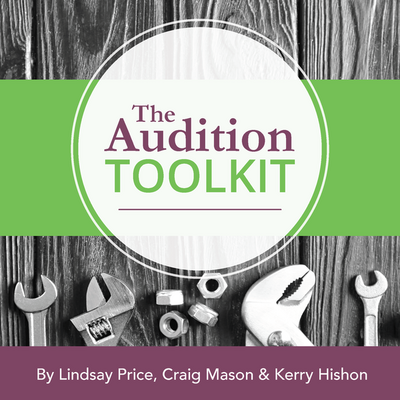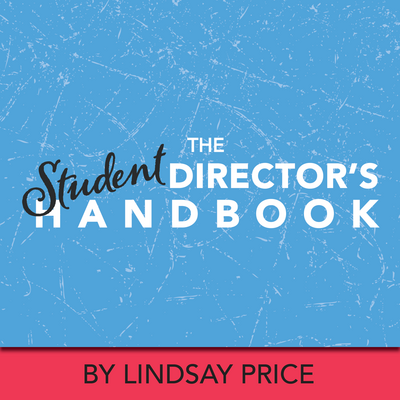There exists in everyone the potential for good or evil. Laramie Dean's adaptation of Dracula asks the question: How much would it take to bring out the darkness inside of you?
Preparing for Auditions from the “Other” Side of the Table: 5 Tips for Success (and Sanity!)
All right! You’ve decided on the show your school is going to produce this year. You’ve obtained the performance rights and paid for the royalties. You’ve got the show dates in place, and you’ve booked the venue. Now, the next step is to assemble a cast–which means auditions!
The following five steps will help you to get organized for the upcoming auditions. The more you have planned out in advance, the smoother your audition day will run. You can also check out Theatrefolk’s Ultimate Guide to Holding Effective Auditions.
Step 1: PUBLICIZE
How will you spread the word about your auditions? You’ll need to get flyers or posters for sure. If your school has a newsletter, website, or social media, you should also use those avenues. In the audition notice, include the dates and times available to audition (as well as callback dates, if you wish to have them), whether students can drop in or if they need to book an appointment, and what students will need to prepare for their audition (a prepared monologue, song, cold read, or something else).
Step 2: PLACE
Where will auditions be located? Do you have to book a room in advance? Be sure that whatever location you choose is clean and bright and has adequate space for both the actual auditions and a waiting area for the other audtioners. If possible, try to cover any windows or keep the door shut for the privacy of the student currently auditioning and for the nerves of the other students waiting to audition.
Step 3: PEOPLE
Who will watch the auditions? Is it just the director (or, if it’s a musical, is it just the musical director and choreographer)? Or will it also include producer, stage manager, and/or someone else?
I highly recommend having an assistant to help outside the audition room, acting as a “waiting room” attendant. This person helps people sign in, collects information sheets, takes photos of the students (if you haven’t worked with them before), answers questions, and keeps order outside the audition room. This way you are free to focus on the auditions. This person can also secretly keep an eye on students and report back to you about their behavior before and after the auditions. Was a certain student disturbing others while they were waiting? Were they quiet and shy? Were they polite to the other students? These observations can be extremely useful in the casting process–you want talented actors of course, but you also want to work with students who are nice (not divas)!
Step 4: PAPERWORK
Auditions often require a lot of paperwork, such as:
- Sign-up sheets for before the audition
- Sign-in sheets, so you can see who actually showed up for the audition
- Signs indicating where auditions are being held
- Information sheets (a free template is available to download below)
- Blank paper to take notes
- A calendar with rehearsal and show dates
- Extra copies of the script (and score, if applicable)
- If you are doing cold reads, copies of the scenes that students will read from
Be sure to have all these prepared ahead of time!
Step 5: “PROPS”
It’s best to set up your audition space ahead of time so you’re ready to go on the day of auditions. Here is a list of items you’ll need to make your life easier on Audition Day:
- A table and chairs for the artistic team (you might want a second table and chairs outside of the audition room if you have a “waiting room” attendant)
- Paper and pens/pencils for taking notes
- A camera to take photos of the students to attach to their information sheets
- A clock, to keep you from running over time
- If you are directing a musical, you’ll need a CD player or an iPod dock for playing accompaniment tracks and/or a piano or keyboard for your accompanist
With a little bit of planning ahead, your auditions will run smoothly–one less thing to have to worry about. Good luck for your upcoming auditions!
And don’t forget to check out Theatrefolk’s Ultimate Guide to Holding Effective Auditions!
Related Articles
Audition Toolkit
by Lindsay Price, Craig Mason, and Kerry Hishon
Teach students to present their best selves in an audition situation with The Audition Toolkit - complete with articles, exercises, tips and more for both teachers and students.
The Student Director's Handbook
by Lindsay Price
Help students take their show from first audition to opening night with The Student Director’s Handbook. This easy-to-use ebook is full of guidelines, tips and templates designed to help students create a vision, circumvent problems and organize rehearsals on their way to a successful production.
The Rehearsal Companion
by Kerry Hishon
You’ve chosen the play, paid the royalties, done the script analysis, held your auditions, and cast the show. Tomorrow is the first rehearsal. Are you ready? Really ready? The Rehearsal Companion can help!






